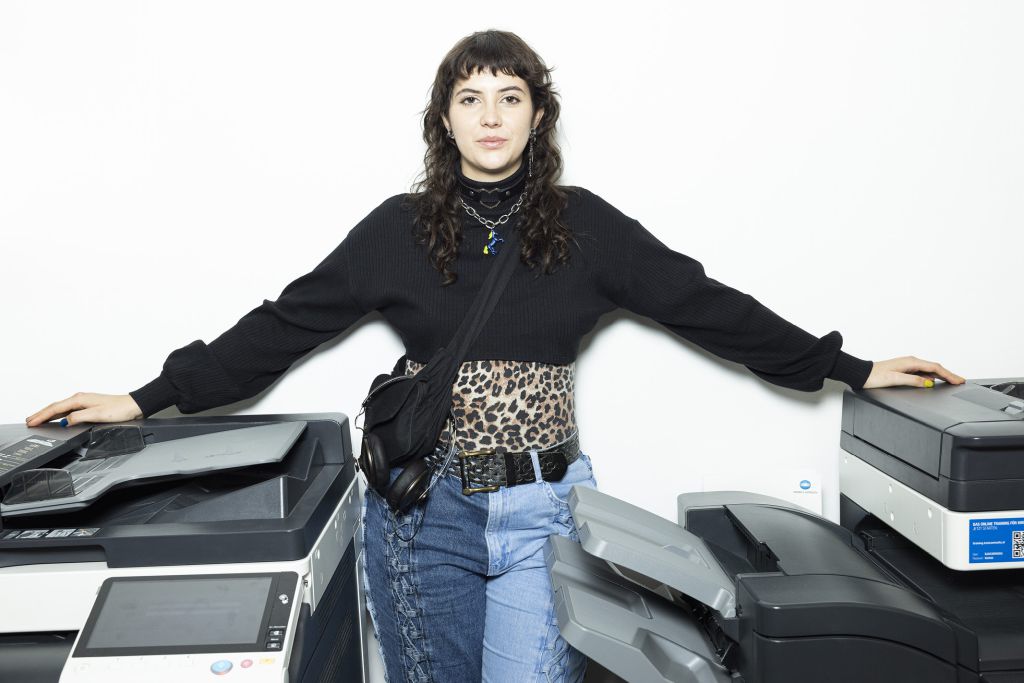Studiert an der mdw seit: Oktober 2019
Studienfach: Musiktherapie
Lieblingsort an der mdw und warum: Überall, wo es einen Kopierer gibt, weil ich zu faul und geizig bin, mir einen Drucker zu kaufen.

Lieblingsort in Wien: Donautechno. Dort bin ich schon vor meiner Wien-Zeit hingegangen und habe so einige Abende verbracht. Außerdem bekommt man dort vegane Hot-Dogs und, wenn man sich mit den Barkeepern anfreundet, auch Gratisgetränke.
Was ich gerne gleich zu Beginn des Studiums gewusst hätte: Dass ich selbstbestimmt auftreten darf. Die Universität ist immerhin dazu da, uns Studierende auszubilden und sollte unsere Bedürfnisse wahrnehmen.
Wenn ich musiziere, dann fühle ich mich lebensnah.
Eine Frage/ein Thema, das mich derzeit/allgemein sehr beschäftigt ist: Wie kann dem Großteil Österreichs die Abschaffung von Bargeld, die nicht einmal zur Debatte steht, mehr Sorgen bereiten als struktureller Rassismus? Ich würde mir sehr wünschen, dass die Menschen anfangen zu denken und ihre Ängste zu reflektieren. Nicht nur auf die Volksbegehren bezogen, die kürzlich eingereicht wurden, sondern auch zum Beispiel auf feministische Fragen oder klare Linien der Wissenschaft.
Mein größter Erfolg bisher ist auf meinem Lebensweg Leute gefunden zu haben, die ich mir nicht mehr wegdenken kann. Ohne mein soziales Umfeld hätte ich große Schwierigkeiten, Lebenskraft zu schöpfen.

Welche Bedeutung hat die Wirkung von Kunst auf Gesundheit in der Arbeit als Musiktherapeut_in? Ich würde den recht weit zu verstehenden Begriff der Kunst in diesem Kontext zunächst auf das musikalische Improvisieren beschränken. Über das gemeinsame Improvisieren kommt man auf einer tieferen Ebene miteinander in Kontakt und kann zudem viel über sich selbst lernen. Auch nicht außer Acht zu lassen ist die Freude, welche die Patient_innen meist dabei empfinden. Es ist also ein zentraler Wirkungsfaktor in der Musiktherapie, der Patient_innen den Umgang mit ihren Leiden erleichtert.
Inwiefern ist die eigene Gesundheit im Rahmen des Studiums Thema und worauf sollte man deiner Meinung nach als Studierende_r achten? Wir haben das Glück, im Rahmen des Musiktherapiestudiums viel Selbsterfahrung absolvieren zu müssen – sprich, wir sind selbst in Gruppen- und Einzeltherapie. Ich würde Studierenden den Rat geben, auf das eigene Bauchgefühl zu hören und so manche Leistungsansprüche zu hinterfragen. Den Mut zu haben, die Richtung zu ändern und sich genügend Zeit für die Ausbildung zu nehmen. Vergesst außerdem bitte nicht, dass es ein Leben außerhalb der Universität gibt!

